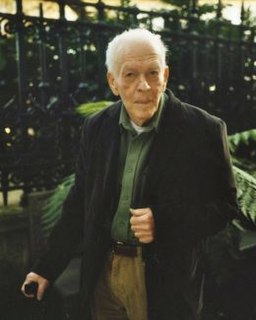A Quote by Gustave Flaubert
After a person dies, there is always something like a feeling of stupefaction, so difficult is it to comprehend this unexpected advent of nothingness and to resign oneself to believing it.
Related Quotes
Living Things. The garden can be as unlimited a resource as you want it to be. It's an escape from everything if you just want a break. It is something to do with living things, not a static piece that you put there and look at but something that changes every day. You're committed to it. If you don't look after it, it dies on you. And if you do look after it, it will give you rewards - pleasure, and a feeling of achievement. There's a sense of responsibility developed in a garden.
Belief isn't simply a thing for fair times and bright days...What is belief - what is faith - if you don't continue in it after failure?...Anyone can believe in someone, or something that always succeeds...But failure...ah, now, that is hard to believe in, certainly and truly. Difficult enough to have value. Sometimes we just have to wait long enough...then we find out why exactly it was that we kept believing...There's always another secret.
To me, ultimately, martial arts means honestly expressing yourself. Now, it is very difficult to do. It has always been very easy for me to put on a show and be cocky, and be flooded with a cocky feeling and feel pretty cool and all that. I can make all kinds of phoney things. Blinded by it. Or I can show some really fancy movement. But to experience oneself honestly, not lying to oneself, and to express myself honestly, now that is very hard to do.
There’s one thing that’s been 'learned' maybe from Tunisia and Egypt that I think is a mistake. And that is that the existing ruler has to resign. He doesn’t have to resign. You take all the supports out from under him; he falls. No matter what he wants to do. This is the distinction in the analyses between nonviolent coercion in which he has to resign, but he’s forced into it, and disintegration when the regime simply falls apart. There’s nobody left with enough power to resign.






































